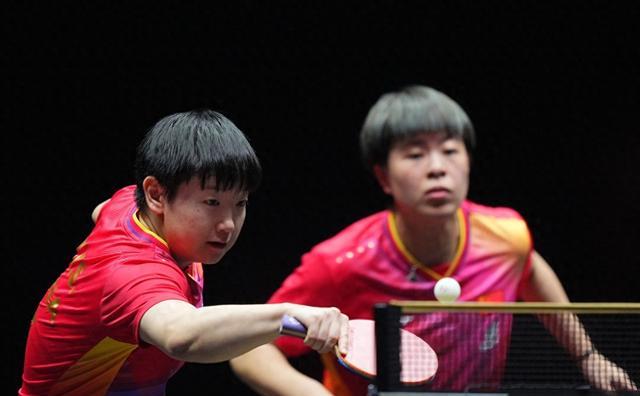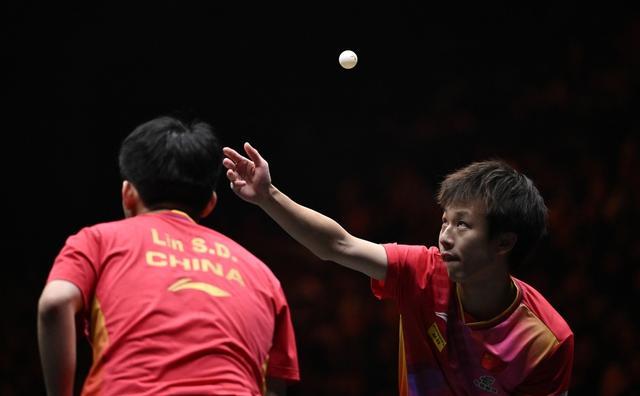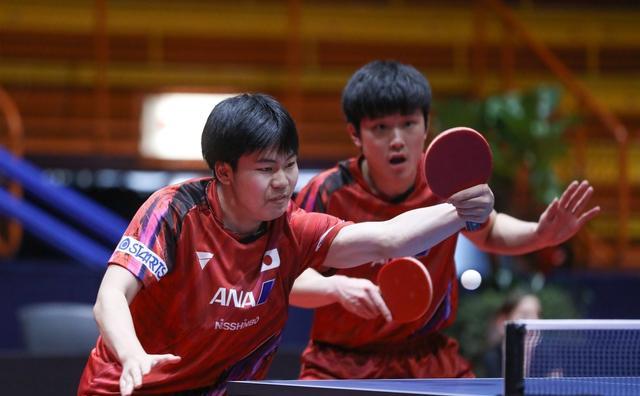Sun Yingsha and Wang Yidi's draw results are really disappointing, but after seeing Zhang Benzhihe's position, my psychological balance was instantly restored.
There are two groups of male and female players, each drawn into one half of the bracket. In other words, our hope of winning both the championship and runner-up has disappeared.

Let's start with the women's doubles. Originally, in this event, Guoping (National Table Tennis Team) still had a significant advantage. Sun Yingsha and Wang Manyu's "Seafood Sisters" once dominated the women's doubles for a long time. Chen Meng and Wang Yidi's combination also won the women's doubles championship, and Wang Manyu and Chen Meng's Olympic combination were invincible.
However, the current situation is that these three pairs have all disappeared due to various reasons. The highest-ranked doubles pair in Guoping is Chen Xingtong and Qian Tianyi, while the newly formed pair of Sun Yingsha and Wang Yidi ranks at the bottom among eight pairs.

As soon as I see Sun Yingsha and Wang Yidi, I feel like complaining. I really don't understand the purpose and significance of this move. How can these two be the women's doubles partners for the Los Angeles Olympics?
Back to the game, Sun Yingsha and Wang Yidi's first-round opponents are Sato Miu and Hashimoto Honoka, a double chopping pair with an extremely bizarre playing style. If we talk about singles, Shasha and Dadi can win no matter how they play, but in the doubles arena, it's hard to say what the outcome will be.

Chen Xingtong and Qian Tianyi, this pair won the women's doubles championship at the Grand Slam tournament. Their opponents are Cheng I-Ching and Li Yu-Jhun. Under normal circumstances, the possibility of advancing is high. However, even if both pairs advance, they will meet in the semi-finals.
In the other half of the bracket, the strongest are still two Japanese pairs, Da藤沙月 and Hori井咲樱, as well as Nagasaki Misuzu and Mihara Miyuu. Japan has three pairs participating in the women's doubles final, except for Da藤沙月, none of them participate in the women's singles competition. From physical strength to skill, they will pose a huge threat to Guoping.

Now let's talk about the men's doubles, which is a bit better.
Xiang Peng and Yuan Licen were last year's final champions. They have no distractions from singles and have good cooperation, making them strong contenders for the doubles championship. Their first-round opponents are Singapore's Feng Yaoyi and Guo Yong. The latter won the men's doubles runner-up at the Asian Championships, so their strength cannot be underestimated. Normally, Xiang Peng and Yuan Licen have a high chance of advancing.

Lin Gaoyuan and Lin Shidong face Kurosawa Hayato and Oshima Daisuke. Guoping's "Double Lin" combination has a pretty good record, and normally, there shouldn't be a big problem winning. What's annoying is that even if both Guoping pairs advance, they will have to meet in the semi-finals, with only one pair able to enter the final.
In the other half of the bracket, Zhang Benzhi and Matsushima Kakeru are grouped with the Lubrun brothers. Normally, whichever pair wins will basically secure a spot in the final. Judging by their strength, the Lubrun brothers clearly have the advantage. Therefore, the likely matchup for the men's doubles final is the Lubrun brothers against one of Guoping's pairs.
Speaking of this, I also feel sorry for Zhang Benzhi for three seconds. He drew Liang Jingkun in singles and the Lubrun brothers in doubles. Although Japan is the home team, this draw is too tough.
Doubles, not being a main event in the Olympics, is less important compared to singles. However, in grand slam tournaments, world championships, finals, and even team events in the Olympics, doubles are essential. Doubles matches test the默契 between players and are prone to upsets, so they are very interesting to watch.
Overall, Guoping's men's team still has a relatively high chance of winning the championship, whether it's Xiang Peng and Yuan Licen or Lin Gaoyuan and Lin Shidong, they both possess absolute strength. In contrast, the women's team is different. Surrounded by three Japanese pairs, Sun Yingsha and Wang Yidi, as well as Chen Xingtong and Qian Tianyi, will find it difficult to break through.
What do you think?